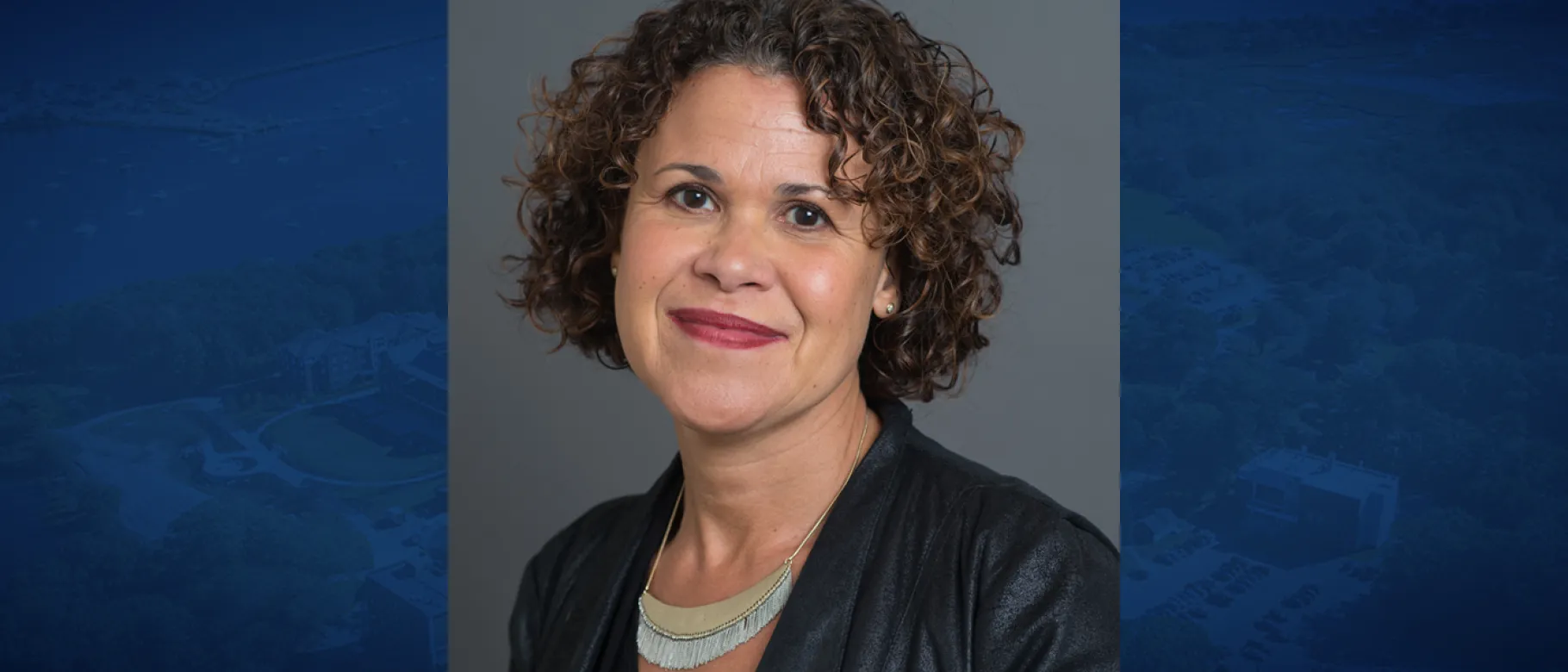Arabella Perez shares her expertise on staying resilient in challenging times

In these challenging times of COVID-19 and civil unrest Arabella Perez, LCSW, assistant clinical professor in the School of Social Work, wants people to know that it is okay to feel out of sorts.
“One of the things that's really important for folks to know is that it is actually okay to not be okay,” she explained. “I get a little nervous when people say to me, ‘Oh, I'm okay.’ It is okay to be scared and fearful. It is really important to identify all of those emotions and find spaces to talk about them.”
Over the past few months, Perez has been delivering talks to health providers about staying resilient during tough times.
On Wednesday, July 22, Perez shared her expertise with UNE students, faculty and professional staff by leading a reflective panel discussion and interactive workshop on resiliency using trauma and racially-informed strategies. The online event was offered by UNE’s Center for Excellence in Collaborative Education in partnership with UNE’s Planetary Health Council.
“Students will need to develop these skills; perhaps some already have them, but need a little bit of a refresher on how they can help manage their own level of dysregulation,” Perez said.
The past few months have been tough for some people dealing with the coronavirus pandemic and civil unrest in the wake of the death of George Floyd. Fear, loneliness, anxiety, sleeplessness and memory loss can result in times of trauma.
“I talked about trauma -- not just individual trauma, but community trauma, societal trauma and historical trauma,” Perez explained. “COVID-19 is certainly a collective trauma that we're experiencing. When we talk about Black Lives Matter, that is historical trauma that has been with us for 400 years plus. Students, and probably faculty and staff as well, may have their own personal responses to both COVID-19 and Black Lives Matter. Then you add to that the dynamic that now they’re working with the community.”
Perez says in order to help others, health providers should practice techniques to help them remain resilient.
“We are now hearing that the next pandemic is going to be a mental health pandemic,” she stated. “We must work on maintaining our emotional hygiene, really pausing before we get into that place of reaction and practice identifying our emotions and naming them.”
Perez discussed methods to recognize the natural ways our biology has evolved to respond and adapt to stress and explore the neuropsychology of our response to COVID-19, structural racism, and white privilege.
“I also provided participants with tools and grounding techniques, showing the importance of meditation and mindfulness so that they can really give themselves an opportunity to hit the reset button and renew their energy,” Perez said.